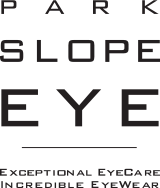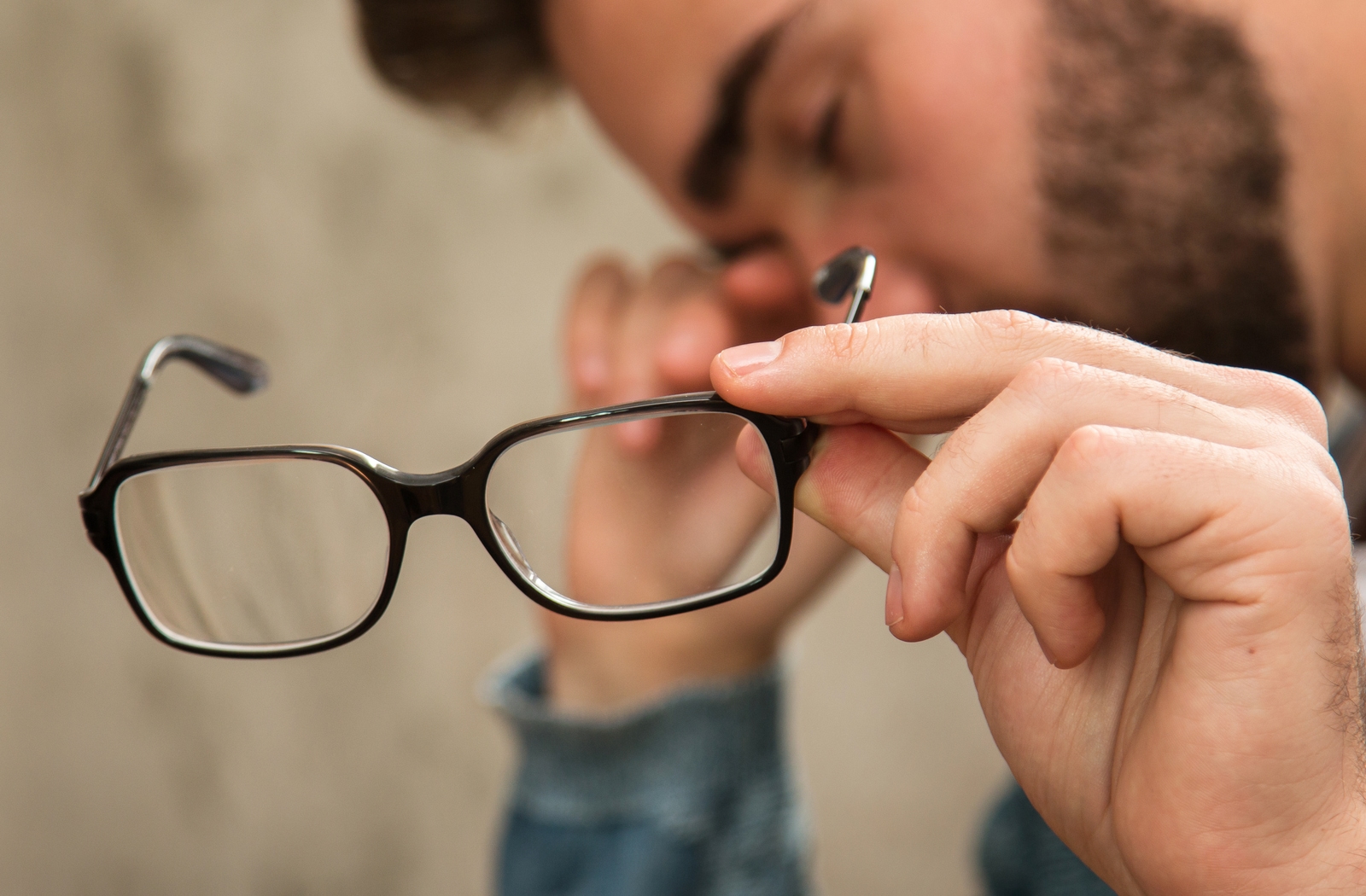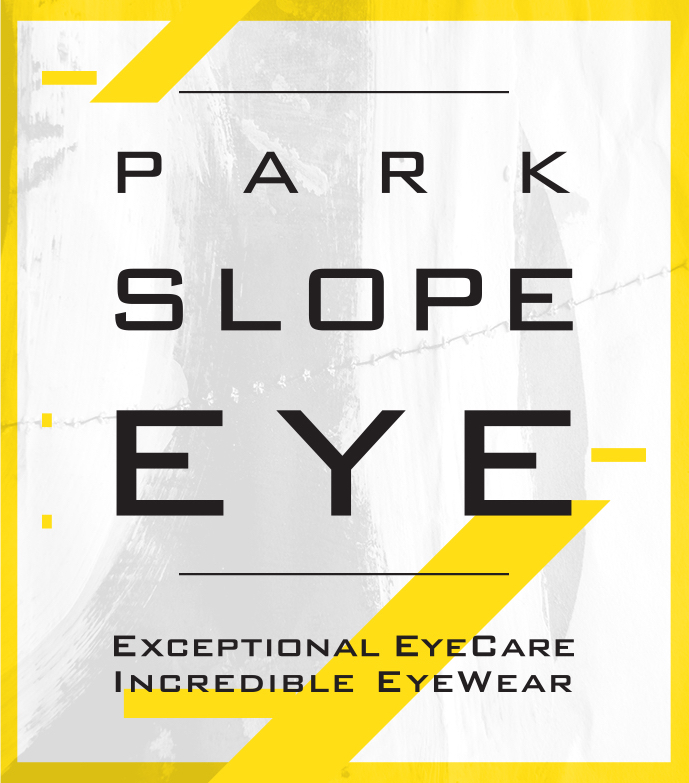Your eyes and visual needs are unique. Wearing the correct prescription determined by your eye doctor during a comprehensive eye exam can help you see life clearly. But, over time our eyes can change and so does our prescription.
Wearing outdated or the wrong prescription glasses is unlikely to cause permanent damage to your eyes. However, it can lead to various temporary discomforts and vision-related issues, such as:
- Blurred vision
- Eye strain
- Headaches
- Eye fatigue
If you notice persistent discomfort or vision problems while wearing your glasses, consult your eye care professional. Scheduling regular eye exams is essential for maintaining good eye health and ensuring that you’re wearing the correct prescription to see clearly and comfortably.
Benefits of Wearing the Right Prescription
Wearing the right eyeglasses or contact lenses helps you see the world more clearly. When you consistently book eye exams, you keep on top of your eye health. You have an opportunity to discuss changing vision needs.
But sometimes vision changes between your regular scheduled appointment. Or your eyeglasses break. Or you forget to re-order your contact lenses. So what happens when your prescription is wrong or you borrow someone else’s corrective lenses?
Wearing Someone Else’s Prescription
Can trying on someone else’s eyeglasses damage your eyes? If you’ve run out of contacts, can you borrow a friend’s?
Although more common among children, it’s not unusual for someone to ask, “Can I try on your glasses?” Whether they want to see how “bad” your sight is or are curious about how they’ll look, trying on someone else’s prescription eyeglasses short-term won’t cause long-term damage.
However, sharing touchpoints, even your glasses, can potentially spread infections. For example, contagious conjunctivitis (pink eye) can be spread after touching your eyes or eye area.
The same risk comes with sharing someone else’s contact lenses. You should never borrow contact lenses previously worn by someone else. Even if they’ve thoroughly cleaned the lenses, there can be deposits or bacteria left behind. However, unused or disposable contact lenses don’t carry the same risk.
Contact lenses are classified as medical devices. Therefore, even cosmetic contacts should be prescribed and monitored by an eye care professional. So, don’t borrow someone else’s contact lenses even if you’ve run out. Unlike borrowing shoes in a similar size, contact lenses are custom-fitted. They won’t fit your eyes the same as someone else’s.
Instead, order new contacts to ensure you’re using your lenses safely and appropriately.
Do Prescription Lenses Weaken Eyes?
There is a misconception that wearing prescription lenses weaken the eyes. Instead of letting the eyes adapt to vision needs, like a weight-lifter training in a gym, lenses don’t encourage eye strengthening. However, the opposite is true.
When your eyes work harder, it can cause eye strain and fatigue. In addition, when one eye is weaker than the other, patients can favor one eye, where the weaker eye gets worse.

What Are the Effects of Wearing the Wrong Prescription Glasses?
There isn’t a risk of long-term eye damage in most adults with stabilized vision. But, you can still experience symptoms affecting vision and comfort. Wearing a prescription that is too weak or too strong can cause:
- Blurry vision
- Eyestrain
- Fatigue
- Headaches or migraines
For children, wearing the wrong prescription can accelerate the progression of refractive errors, including myopia (nearsightedness), hyperopia (farsightedness), and astigmatism. It can also risk visual development in younger children.
How much risk depends on the child’s age and level of visual development, but children under age 9 are particularly vulnerable. The wrong prescription results in an out-of-focus image and can cause vision problems, including amblyopia (lazy eye).
Wrong Prescriptions & Myopia
Myopia (nearsightedness) is a common vision problem occurring when the eye is too long, or the cornea is too curved. High myopia can be progressive, resulting in increasingly poorer distance vision and a greater risk of developing eye problems, including cataracts, glaucoma, and myopic macular degeneration.
Wearing the wrong prescription may worsen myopia. Traditional or single-vision eyeglasses and contact lenses may contribute to worsening myopia. Although the prescription allows for sharper distance vision, it doesn’t completely refocus peripheral light onto the retina, resulting in continued eye growth.
There are potential concerns for children with low myopia wearing their prescription glasses all day. Ideally, a child with low myopia should wear their glasses (or contact lenses) only when engaging in distance-based activities, such as watching TV, taking notes in class, or playing sports. However, some children wear their glasses all the time, including during near vision tasks, including reading, writing, or computer work.
Wearing lenses prescribed with a full correction may also contribute to myopia progression in children. For example, a child may have a refractive error of -3.5 diopter. Therefore, some optometrists may prescribe a lesser lens power, such as a -3.25 or -3.0 diopter.
Although the full correction may result in clearer vision, the lesser correction may also allow for similar visual comfort. However, the full correction can potentially cause worsening myopia.
When to Update Your Prescription
Prescription lenses have an expiration date. Eyeglasses prescriptions typically expire between 1–2 years from the day of your eye exam. Contact lenses are out-of-date after one year. The timeframe is shorter for contact lenses because there are more significant risks requiring more frequent eye health evaluations.
There are 2 reasons for the expiration date. First, your eyes change over time, resulting in a prescription change. Second, it’s also crucial to routinely evaluate eye health. Even if prescription power is unchanged, there can be other changes. Eye exams help diagnose and manage eye diseases, including conditions that may not affect vision in the early stages of development.
Eye exams are recommended every 2 years for low-risk adults and annually for low-risk school-age children. Patients with a higher risk should schedule comprehensive eye exams more frequently, as recommended by their eye doctor. Then, your optometrist can determine if you need an updated prescription at your regular eye exam.
Visit Us to Update Your Prescription
Regular visits to your optometrist can help you maintain healthy vision. Visit our Park Slope Eye team to keep your prescription up-to-date. We can also answer your questions about any changes to your visual comfort. When your eye comfort or vision is affecting your life, contact us. Book an appointment today!









